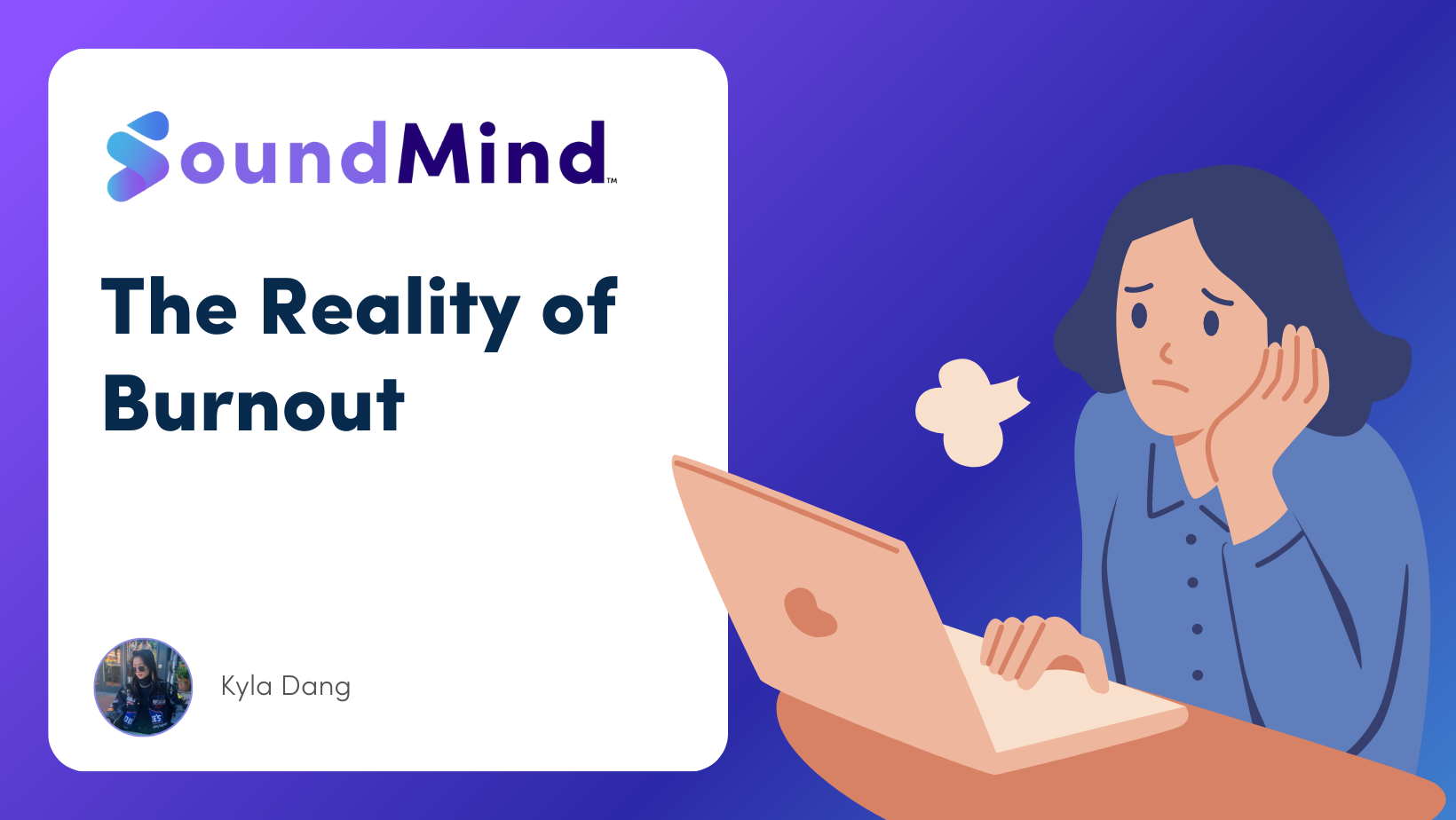Posted on August 17, 2023 by Kyla Dang


High stress, prioritizing productivity, and not respecting days off are just some of the reasons why employee mental health is rapidly declining. The COVID-19 pandemic challenged America to find workable solutions to not being able to come into the office, but it’s clear that employees are still stressed at home. It’s not just the environment that’s draining—it’s all the stress that comes with being expected to work 40 hours a week and still have time to be a normal, functioning human.
A Deloitte report published in 2023 shows that only 63% of workers positively rate their physical health, while almost 40% claim that a toxic work environment is taking a toll on their physical, mental, and social health. However, many executives assume employees are doing much better than they actually are: 77% of leaders believe that employee wellbeing and mental health is much better at their company than it actually is.
75% of employees worry that in the face of a financial recession, their company would cut back on mental health support and benefits that they utilize. On the flip side, 64% of the CEOs surveyed claimed they would increase mental health benefits in a recession, so this remains to be seen. Mental health has been growing in priority lately, with 93% of CEOs agreeing that the company should be encouraging positive mental health in their employees. Although it’s a huge step in the right direction, it’s up to companies to stand by their claims and execute for the wellbeing of their workers. By utilizing programs such as SoundMind, Calm, and Headspace, workplaces are striving more to give employees the mental health tools they need, but it’s not effective unless the work environment is also supportive of mental health.
A 2023 Headspace survey on workplace attitudes towards mental health shows that many leaders and CEOs believe that keeping a permanent positive attitude in the workplace is the key to success, especially in times of uncertainty. On the downside, for employees this may be causing additional stress and creating a disconnect between leadership and workers—when bosses are always expecting positivity, it makes it difficult for employees to honestly communicate when they are constantly having to put on a facade of happiness.
With increasing workplace stressors, it becomes difficult to pencil in some time for rest and self-care. 74% of employees surveyed by Deloitte say that they have a difficult time unplugging and disconnecting from work, while just 42% say they have enough time for socializing and engaging in hobbies. America is burned out, and the responsibility of finding time for self-care is on the employees.
Employees are stressed out and overworked, and many report not having time to enjoy their non-work lives or spend time with loved ones. With mental health declining among all groups, from students to employees, it demands a better solution, starting with empowering individuals with mental health tools and a supportive work environment. Respecting workers as human, leading with empathy, and motivating teams to get work done positively is only the start to turning around workplace mental health. SoundMind aims to give administrators and leaders the tools to help their employees using AI insights and mood tracking, as well as utilizing the power of sound to combat the mental health epidemic that is our reality. Check out more of our blog here to see what we’re doing to fight back, and read about how you can take care of yourself better.
Thank you for reading “Piece of Mind”! If you liked this post, share it with a friend and help us increase our positive impact on Gen-Z mental health 🙂
Subscribe to receive blog updates!